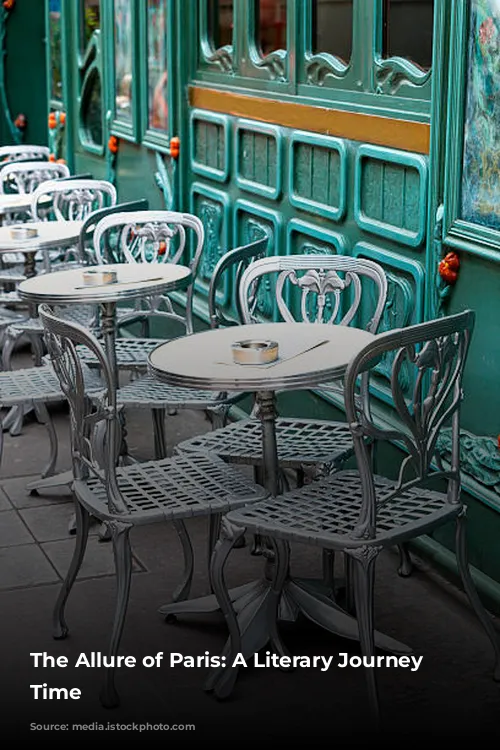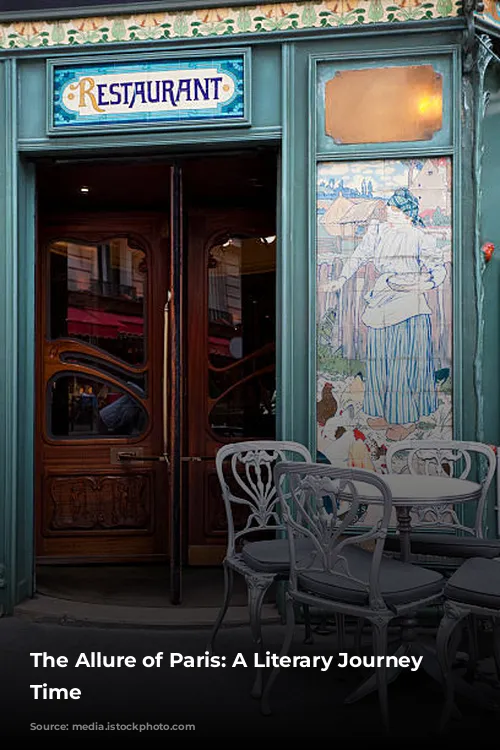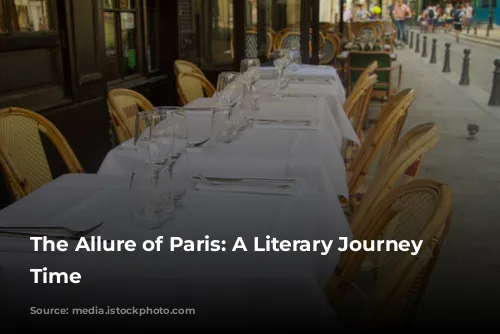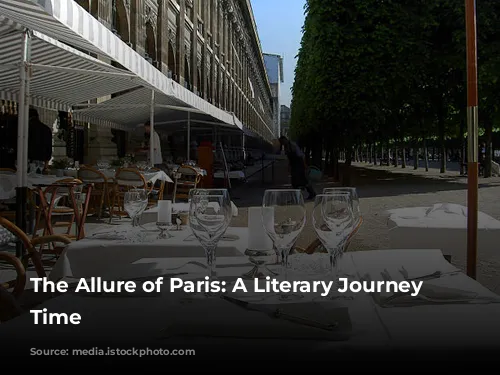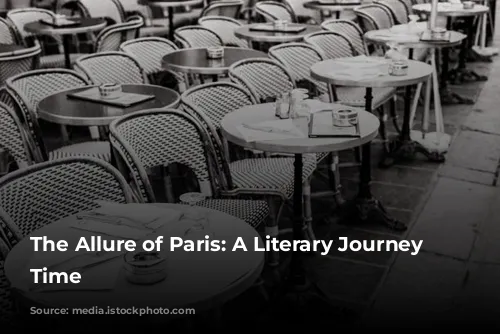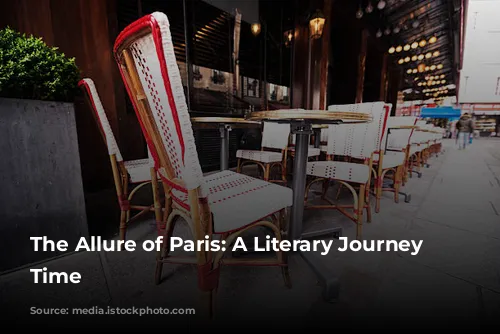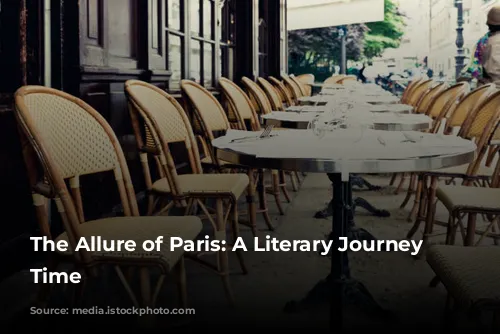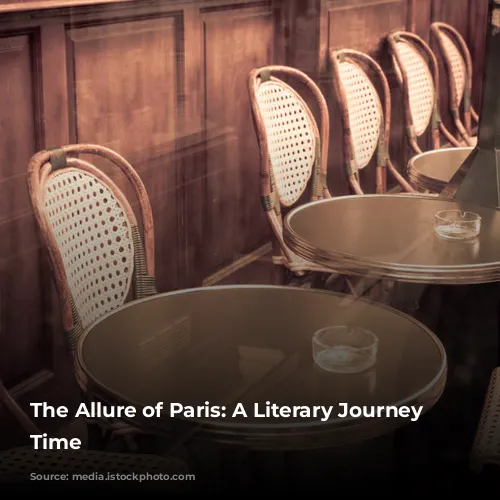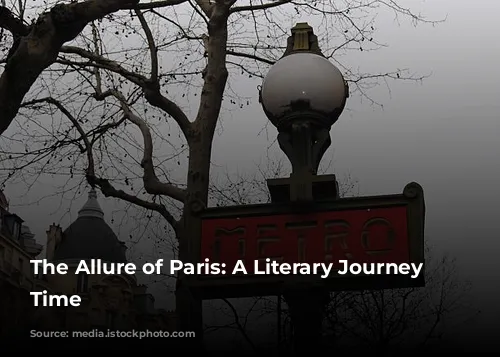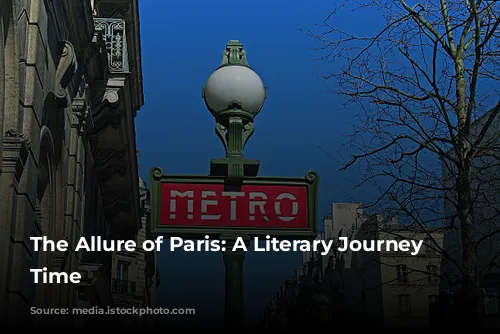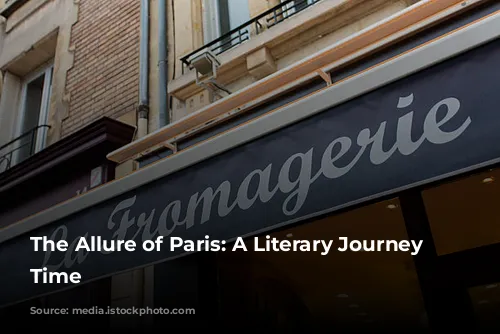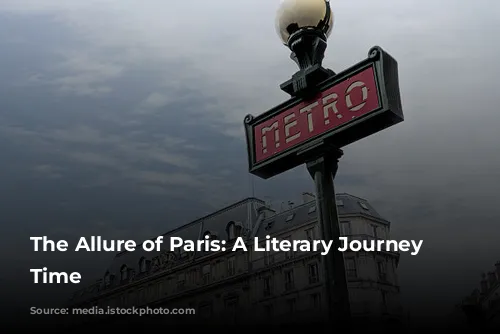Paris, a city that whispers tales of romance and artistry, holds a special place in the hearts of many. For those who haven’t had the chance to wander its cobblestone streets, the dream of strolling along the Seine, sipping coffee at a charming café, and immersing oneself in a captivating novel is an enchanting image.
But Paris is more than just a beautiful backdrop. It has been a magnet for creative spirits throughout history, especially writers who have sought inspiration and companionship within its walls. The city’s cafés have become legendary meeting places, echoing with the voices of literary giants and serving as fertile ground for artistic expression.
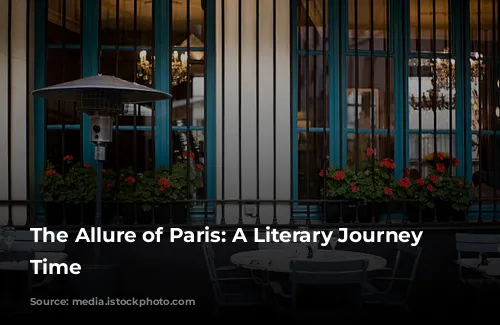
Cafés Steeped in Literary History: A Must-Visit for Book Lovers
Stepping into one of these historical cafés is like stepping back in time, surrounded by the ghosts of literary greats. Each café has its own distinct story, a tapestry woven from the lives and works of the writers, poets, and philosophers who graced their tables.
Café de la Paix: Where Elegance Meets Literature
Opened in 1862, Café de la Paix boasts a grand presence, its opulent decor rivaling that of the nearby Opera Garnier. This opulent café was a favorite of the French elite, attracting actors, writers, and even politicians. Charles de Gaulle, a prominent figure in French history, even dined here after the liberation of Paris. The café’s proximity to the opera house made it a popular spot to grab a drink or a bite after a performance, but its captivating view of the Opera Garnier also served as a source of inspiration for countless artists. Among its famous patrons were Guy de Maupassant, Émile Zola, Marcel Proust, Victor Hugo, and Oscar Wilde – names that resonate with literary lovers worldwide.
Le Procope: A Journey Through Centuries
Claiming the title of the oldest café in Paris (though with a brief hiatus in the early 20th century), Le Procope holds a special place in the city’s history. This café was a hub for the artistic and intellectual elite of the 18th and 19th centuries, drawing in actors, philosophers, writers, and poets who sought a lively exchange of ideas. Enlightenment thinkers such as Denis Diderot, Jean-Jacques Rousseau, and Voltaire, whose ideas shaped the world, frequently met here to engage in stimulating discussions. The café’s association with Voltaire is particularly intriguing, as he is said to have consumed an astonishing 40 cups of coffee daily within its walls. Le Procope also played a significant role during the French Revolution and later witnessed the emergence of the 19th-century Romantic movement, welcoming authors like Victor Hugo, Georges Sand, and Alfred de Musset who found inspiration within its walls.
La Closerie des Lilas: A Haven for Poets and Writers
This café, known for its rich literary past, was a popular haunt for 19th-century poets like Charles Baudelaire and Paul Verlaine. Tuesday evenings were especially lively, as poets Paul Fort, Max Jacob, and Guillaume Apollinaire would gather for poetry readings often accompanied by absinthe. Later, the café became a meeting place for a new generation of literary giants, including Samuel Beckett, Jean-Paul Sartre, and Oscar Wilde. Americans like Henry Miller, F. Scott Fitzgerald, and Ernest Hemingway were also regulars, drawn to the café’s vibrant atmosphere and its reputation as a creative hub. Hemingway, in particular, held a special fondness for La Closerie des Lilas, immortalizing it in his memoir, A Moveable Feast, and calling it his “home café.” The café’s significance in the world of literature is further emphasized by the Prix de la Closerie, a literary prize awarded annually to contemporary French women writers.
Les Deux Magots: A Literary Icon
This famous café, synonymous with literary history, was once the meeting place of the Parisian intellectual and artistic elite. Its influence was so profound that it even established its own literary award in 1933, the Prix des Deux Magots, which recognizes new novels that are unconventional and thought-provoking. Hemingway was a frequent visitor to Les Deux Magots, alongside other literary luminaries such as James Joyce, Simone de Beauvoir, Albert Camus, Paul Verlaine, and Jean-Paul Sartre. American authors James Baldwin, Richard Wright, and Chester Himes also embraced this café, adding to its rich tapestry of literary heritage.
Café de Flore: A Cradle of Artistic Movements
Café de Flore, named for the nearby statue of the Roman goddess of spring and flowers, boasts a long and distinguished history. Its second-floor terrace, adorned with vibrant flowers and foliage, provides a picturesque setting for soaking in the Parisian ambiance. Inside, the Art Deco decor has remained largely unchanged since World War II, adding to the café’s timeless charm. In the early 1900s, Guillaume Apollinaire, a prominent writer, transformed the ground floor into a publishing house and newsroom alongside André Salmon, where they later founded the literary art magazine, Les Soirées de Paris. Other notable patrons included Surrealist poet Robert Desnos, Raymond Queneau, Joris-Karl Huysmans, and even Pablo Picasso, highlighting the café’s appeal across various artistic disciplines. French author Charles Maurras even wrote his book on the café’s floor, a testament to its inspiring atmosphere. Café de Flore is also credited with giving birth to significant artistic movements like Dadaism, Surrealism, and Existentialism, as philosophers, artists, and writers engaged in stimulating discussions within its walls. The café’s legacy is perpetuated through the Prix de Flore, a literary prize awarded annually to young writers.
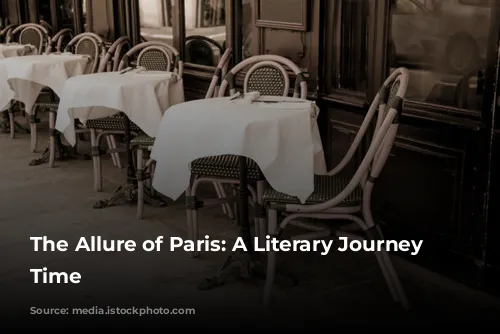
A Dream of Paris: Where Literary History Meets Personal Inspiration
The lure of these Parisian cafés, brimming with literary history, adds another layer to the dream of visiting Paris. Each café is a unique portal to the past, a place where one can imagine the conversations that shaped literary masterpieces and the ideas that sparked artistic revolutions. These cafés are more than just places to enjoy a cup of coffee; they are living monuments to the power of creativity, the enduring legacy of great writers, and the enduring spirit of Paris.
Have you ever had the chance to visit one of these literary cafes? Share your experiences or thoughts in the comments below!
